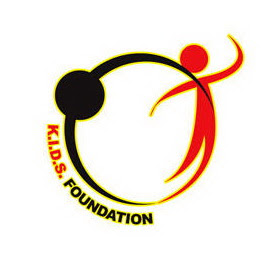Joint Commission International (JCI) was established in 1997 as a division of Joint Commission Resources, Inc. (JCR), a private, not-for-profit affiliate of The Joint Commission. JCI extends The Joint Commission’s mission worldwide by assisting international health care organizations, public health agencies, health ministries and others to improve the quality and safety of patient care in more than 80 countries.
In September 2007, JCI received accreditation by the International Society for Quality in Health Care (ISQua). A non-profit, independent organization with members in more than 70 countries, ISQua is known as the accreditor of accrediting bodies. Accreditation by ISQua provides assurance that the standards, training and processes used by JCI to survey the performance of health care organizations meet the highest international benchmarks for accreditation entities.
In August 2005, the World Health Organization (WHO) designated The Joint Commission and JCI as the world’s first and only WHO Collaborating Centre dedicated solely to patient safety (http://www.ccforpatientsafety.org/). By working collaboratively with ministries of health, national patient safety organizations and experts, health care professional organizations, and patient/consumer groups, the Collaborating Centre focuses worldwide attention on Patient Safety Solutions, Patient Safety Practices and other issues related to reducing safety risks to patients.
High 5s Project: This project was established in 2007 by the Collaborating Centre to implement innovative, standardized operating protocols for five patient safety solutions over five years. This initiative seeks to leverage the implementation of solutions that would have broad impacts in preventing avoidable catastrophic adverse events — such as death or serious injury — in hospitals.
The following five solution areas have been selected as the focus of the High 5s Project:
Prevention of patient care hand-over errors
Prevention of wrong site/wrong procedure/wrong person surgical errors
Prevention of continuity of medication errors
Prevention of high concentration drug errors
Promotion of effective hand hygiene practices
JCI’s Accreditation Program was launched in 1999. The standards were developed by international experts and set uniform, achievable expectations for structures, processes and outcomes for health care organizations. The requirements for accreditation also include international patient safety goals that highlight problematic areas in health care and describe evidence and expert-based consensus solutions to these problems. The survey process is designed to accommodate specific legal, religious and cultural factors within a country. JCI offers accreditation for hospitals, ambulatory care facilities, clinical laboratories, care continuum services, medical transport organizations and primary care services; and certification in disease- or condition- specific care.
In September 2007, JCI received accreditation by the International Society for Quality in Health Care (ISQua). A non-profit, independent organization with members in more than 70 countries, ISQua is known as the accreditor of accrediting bodies. Accreditation by ISQua provides assurance that the standards, training and processes used by JCI to survey the performance of health care organizations meet the highest international benchmarks for accreditation entities.
In August 2005, the World Health Organization (WHO) designated The Joint Commission and JCI as the world’s first and only WHO Collaborating Centre dedicated solely to patient safety (http://www.ccforpatientsafety.org/). By working collaboratively with ministries of health, national patient safety organizations and experts, health care professional organizations, and patient/consumer groups, the Collaborating Centre focuses worldwide attention on Patient Safety Solutions, Patient Safety Practices and other issues related to reducing safety risks to patients.
High 5s Project: This project was established in 2007 by the Collaborating Centre to implement innovative, standardized operating protocols for five patient safety solutions over five years. This initiative seeks to leverage the implementation of solutions that would have broad impacts in preventing avoidable catastrophic adverse events — such as death or serious injury — in hospitals.
The following five solution areas have been selected as the focus of the High 5s Project:
Prevention of patient care hand-over errors
Prevention of wrong site/wrong procedure/wrong person surgical errors
Prevention of continuity of medication errors
Prevention of high concentration drug errors
Promotion of effective hand hygiene practices
JCI’s Accreditation Program was launched in 1999. The standards were developed by international experts and set uniform, achievable expectations for structures, processes and outcomes for health care organizations. The requirements for accreditation also include international patient safety goals that highlight problematic areas in health care and describe evidence and expert-based consensus solutions to these problems. The survey process is designed to accommodate specific legal, religious and cultural factors within a country. JCI offers accreditation for hospitals, ambulatory care facilities, clinical laboratories, care continuum services, medical transport organizations and primary care services; and certification in disease- or condition- specific care.
























































